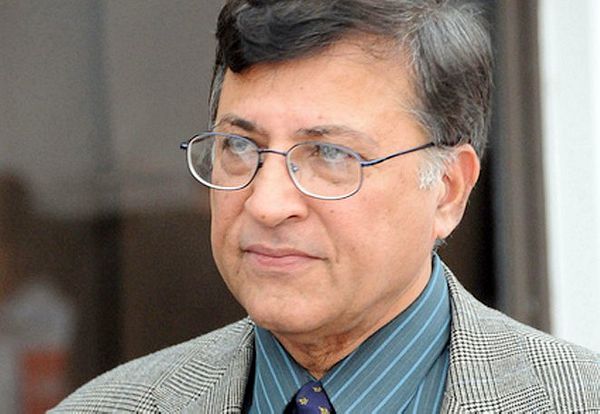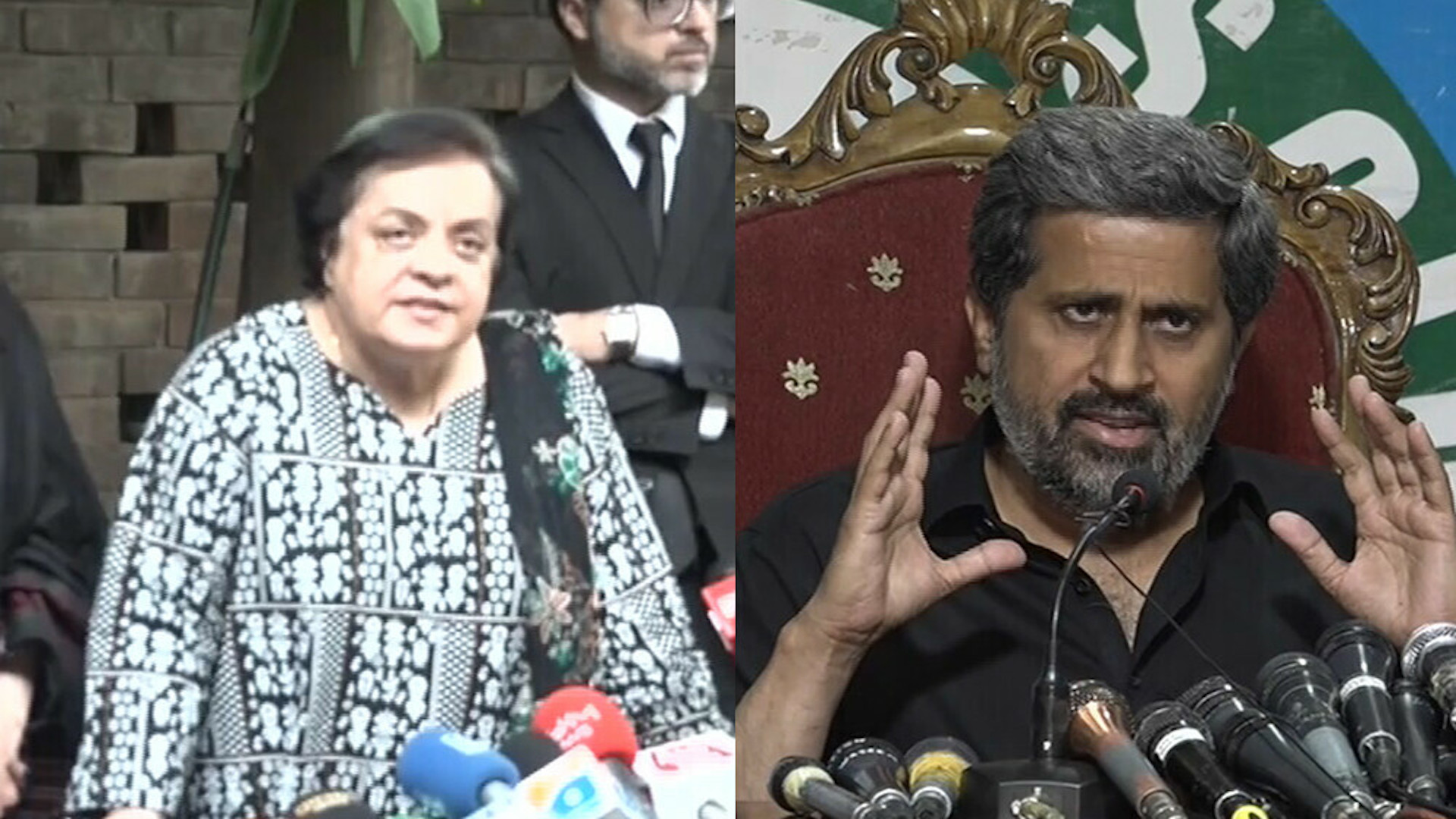Military rule – both overt and covert – has been terrible for Pakistan. Through its mega-sized foundations (Fauji, Shaheen, NLC, etc.) and insatiable greed for plots and plazas, the military has distorted Pakistan’s economy. And, by launching three wars against India, it has brought us disaster each time. The myopic goal of strategic depth espoused by our generals brought the Taliban to power in Afghanistan and so created the Tehreek-e-Taliban Pakistan (TTP) monster. For many years to come, they will be killing our people, police, and armed forces.
But ask yourself whether this is why Imran Khan finds fault with the military. Obviously not! I cannot think of a single occasion where he has criticized the army’s business interests, land grabs, pursuance of enmities with our neighbors, or deplored the Taliban’s atrocities. Khan’s only gripe with the army is that after hoisting him into power it lost enthusiasm and turned “neutral”. Only animals are neutral, he famously said. We all know how earlier on he proudly would repeatedly declare that he and the army are – to quote his famous phrase – “on the same page”.
In a nutshell, Imran Khan will happily reconcile with the army as long as it will help return him to power. He hopes that they can be on the same page again. But that page is not one of democracy, more personal liberties, elimination of corruption, or economic equality through land reform. PTI’s protests are only about one thing – returning Khan to the throne which he believes rightly belongs to him. He has no manifesto for doing away with the systemic ills that have plagued Pakistan since its birth; in fact they are not even mentioned these days. Khan’s is a naked power grab. Democrats and progressives need to understand that.
Senior leaders leaving PTI – a case of coercion?
Meanwhile, senior PTI leader Shireen Mazari has announced she is quitting PTI and active politics after her release from jail. Many other leaders have left the party in the past few days. This is indeed a clear case of coercion. While Mazari and others have my sympathy – and I hope they do not get physically hurt – please note that these people didn’t stand for any principle and their stint in power was only to defend their boss and his policies. Never did they do anything to recover the thousands who went missing in Balochistan. Mazari has jumped parties countless times and was always very close to the army, but ultimately had to choose between that and her boss. Others like Fayyaz ul Hassan Chohan have also been forced to jump off the bandwagon. Those who had enjoyed power – which is all that they wanted in any case – are unwilling to bet on Imran Khan anymore.
A superior force is getting its way. May 9 has become a rallying cry for the army. Imran Khan badly miscalculated the consequences of taking the army head-on in this way. His party will now be broken up and whittled down to a bunch of die-hards. Is this resurgence of the military good for Pakistan? No, not at all.
Still, in the larger scheme of things, it does not matter whether or not the army, PTI, and PDM negotiate it out. It’s the economic collapse which is more serious. And still more serious is the drift towards extremism of a large, religiously intoxicated population which, in the blink of an eye, can be whipped up into a frenzy and which lynches anyone accused of blasphemy. In all essential matters the army, PTI, and PDM are very much on the same page. What Pakistan needs to do is turn the page.
Failure of project Imran – any lessons learned?
The military establishment has learned no lessons from the failure of Project Imran. The army is too powerful, too entrenched, and too deeply imbued with the notion that it is the only savior of Pakistan. The retreat we are presently seeing is purely temporary, and the offence posture is coming back. Yes, Project Imran crashed and therefore last November we had outgoing General Qamar Javed Bajwa’s famous mea culpa where he confessed that for seven decades the army had “unconstitutionally interfered in politics”.
May 9 has become a rallying cry for the army. Imran Khan badly miscalculated the consequences of taking the army head-on in this way. His party will now be broken up and whittled down to a bunch of die-hards. But this resurgence of the military is not good for Pakistan.
Even with Project Imran’s failure, the army’s thinking is much as before: those “bloody civilians” will make a mess of things if given too much latitude and so the army sees itself remaining the final guardian of Pakistan’s national interest. Of course this “interest” is that which the army perceives. It does not coincide with that of the ordinary Pakistani. While many emerging countries have also suffered periods of military dictatorship – Indonesia and Argentina being examples – there was enough learning there, and military rule did not recur. Pakistan is different.
As things stand, the oligarchy that rules Pakistan is largely Punjabi and largely military with just a smattering of civilians. It sees no way to preserve its extraordinary privileges except through a large military which justifies its size by invoking Kashmir. Fortunately for them, Kashmir has no foreseeable resolution. The army wants to keep the country in a state of mind just short of war; and so Kashmir gives sanction to the military’s permanent dominance over every other institution. Civilian leadership is not allowed to challenge this basic, written-in-stone rule. Where and when needed, fanatical religious groups – Deobandi earlier and Barelvi later – are to be cultivated and used as per the need of the moment.
Even with Project Imran’s failure, the army’s thinking is much as before: those “bloody civilians” will make a mess of things if given too much latitude, and so the army sees itself remaining the final guardian of Pakistan’s “national interest”.
What triggered attacks on military installations?
A broader sense of frustration among the masses due to the economic crisis was surely part of the reason for the May 9 protests and ransacking of military installations. With a single naan costing 18+ Rs. and petrol hovering around 280 Rs. per liter, there would surely be anger at those at the top. But that’s not a good enough explanation for such extreme actions. There is also a strong sense of betrayal. Let’s remember that the vandalisation of the corps commander’s house happened in Lahore where every third street is named after some war hero. The PTI protesters were venting anger at the fact that the army had now turned against the greatest and most wonderful of their heroes, i.e. their party’s leader.
But this is still not the full explanation. Normally a sensible person does not go even near an army or ISI installation. One knows that their visible fortifications are supplemented with hidden surveillance cameras – and possibly snipers as well. So how did the rioters manage to pick up so much courage? Why was there no resistance? Could it be that there were people inside who had assured them of their cooperation? Many questions remain.
Drawing parallels with 1971
Imran Khan recently drew equivalence between the establishment’s treatment of PTI and atrocities committed against the people of East Pakistan in the lead up to the creation of Bangladesh. Following this, his supporters on social media have been pushing the narrative that PTI is being treated the way Awami League and its supporters were treated by the military in the 1970s. I wonder why it took Imran Khan 50 years to realize that East Pakistan had been wronged by West Pakistan. Never before had he made any such mention. Drawing parallels with 1971 couldn’t be more absurd. The Bengalis were not just against being ruled by the army but also by the entire political elite of West Pakistan. They were victims of ethnic prejudice by virtue of being shorter and darker. Their denigration started in 1948 with Mr. Jinnah seeking to impose Urdu upon Bengalis during his very first post-partition visit to Dacca. That went on with Bengalis becoming second-class citizens in their own land. Is Mr. Khan saying he and his supporters are being treated like Bengalis? There can’t be anything more absurd.
That Khan should attempt to equate the severity of the present repression with that of 1971 is even more nonsensical. Let’s remember that there were millions of Bengalis who fled to India, and that mass rape was used as a weapon of war. The infamous General Tikka Khan is on record of saying “hum in haramzadon ki nasl badl daengay” (We will alter the race of these bastards). And let’s not forget that the students of Dacca University were machine gunned while sleeping in their hostels. That’s not even remotely connected with the present.
Mobs as a form of political expression
There are basically only two ways by which any conflict can be handled. The first is by trying to outshout your opponent or, if that does not work, by using fists and then guns. The second is through exercise of reason, understanding your opponent’s position, and then seeking to either win him over or defeat him through the force of logic. Unfortunately the upbringing and education of Pakistanis is strongly anti-logic, so PTI and PDM are equally illogical. Our heroes are those who lived by the sword, not those who lived by the pen. Mohammed bin Qasim and Mahmood Ghazni are hugely admired but Al-Farabi and Ibn-e-Rushd are barely known. Imran Khan idolizes Ertugrul, remember?
That mobs have become an important form of political expression is proof of how faith overpowers reason within our culture. In the present case it is not religious craziness but, rather, it is faith in Imran Khan as the messiah who will deliver Pakistan from every evil.
Justice is the right of all humans, and PTI rioters should be tried as per rules of the criminal justice system. Trying civilians in a military court violates the basic principles of justice. Instead, they must be allowed to defend themselves in a fair, transparent trial with access to their legal counsels.

The author is an Islamabad-based physicist and writer

